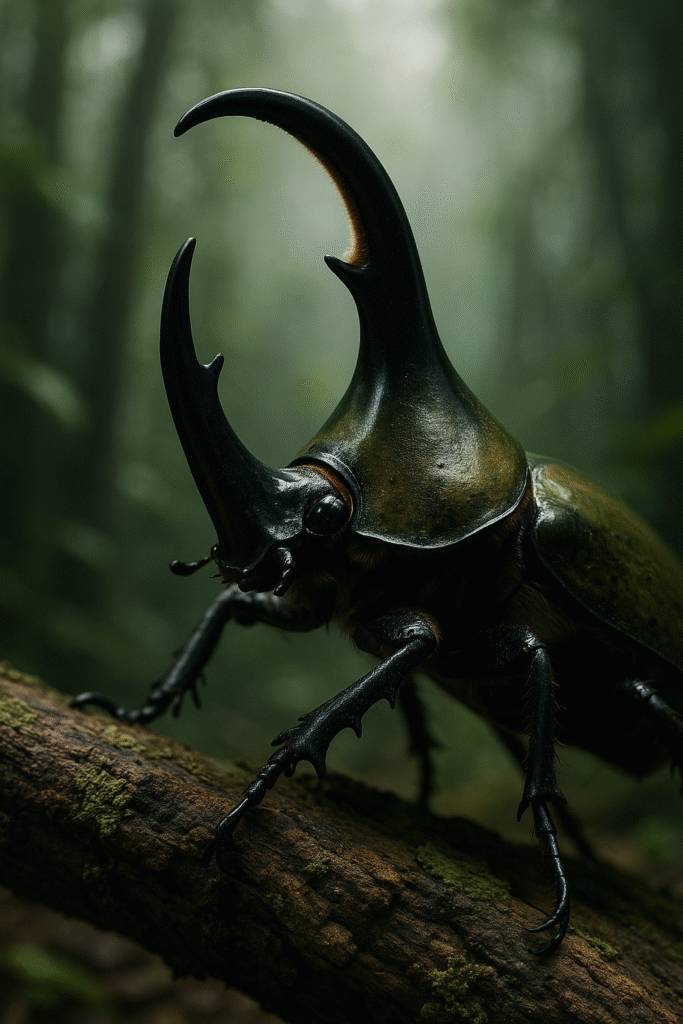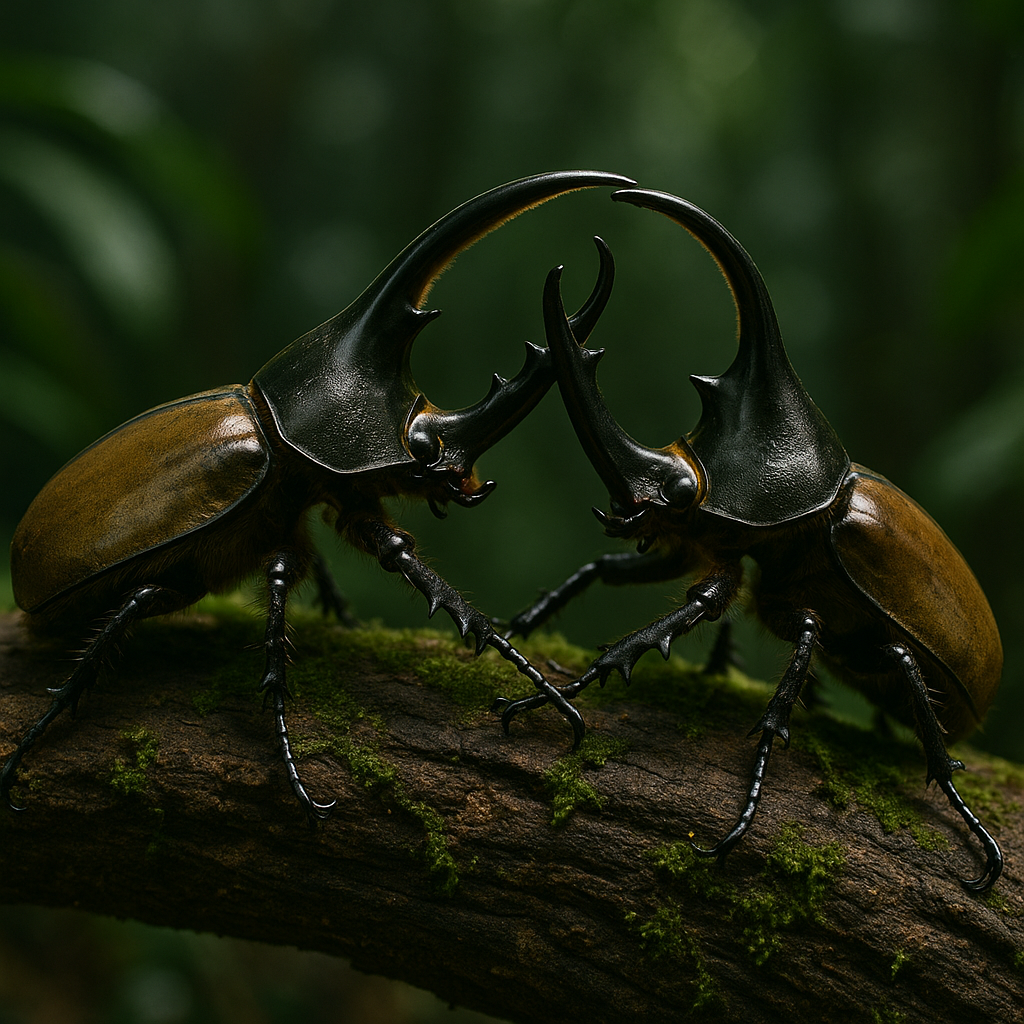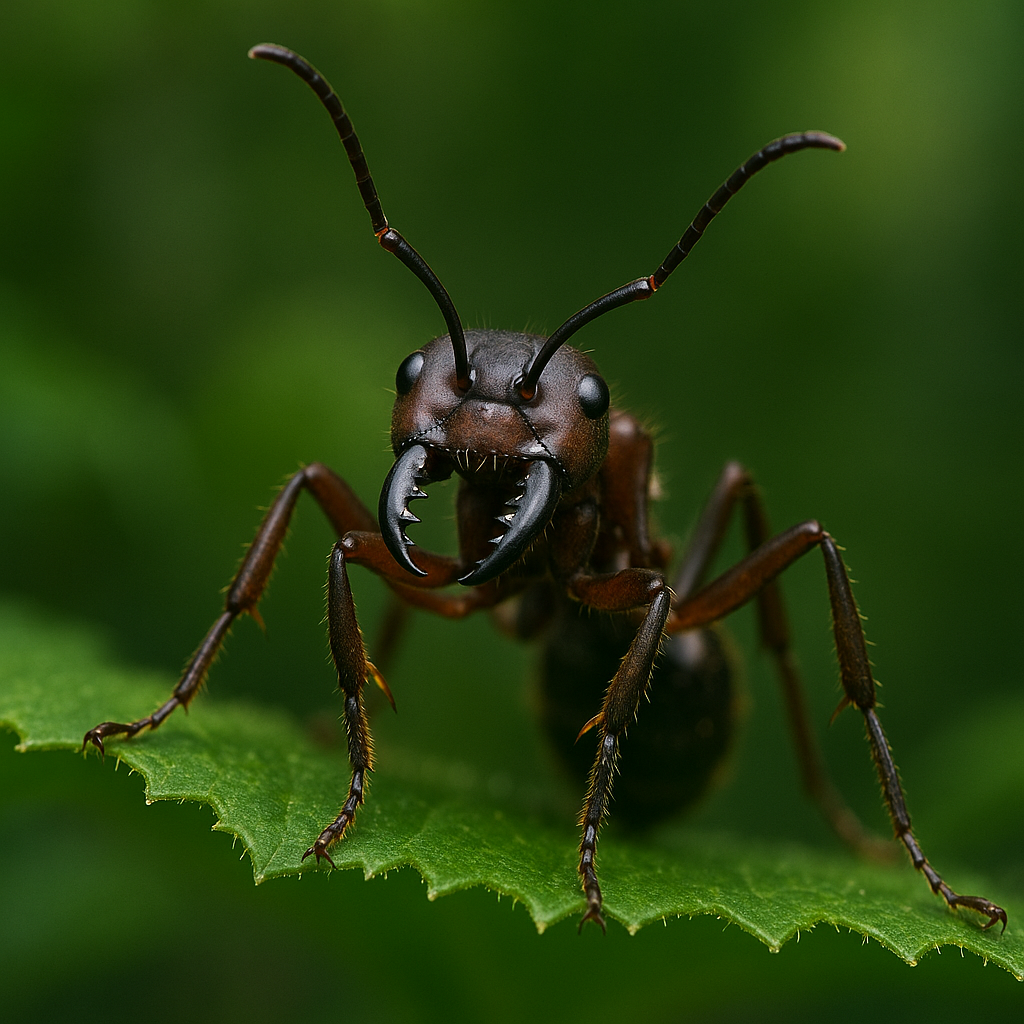In the rain-soaked jungles of Southeast Asia, where vines hang heavy and the canopy dims the sun, a warrior moves unseen. The Atlas Beetle (Chalcosoma atlas) — one of the largest rhinoceros beetles on Earth — is a creature that carries both the weight of its name and the mythology of strength.

Named after the Titan of Greek legend who bore the heavens on his shoulders, the Atlas Beetle appears forged from myth itself: clad in armor, crowned with horns, and built for battle. Yet beneath its formidable exoskeleton lies a life of silence, fragility, and ecological service, making it as much a caretaker of the forest as a warrior within it.
Anatomy of Power
The Atlas Beetle is a colossus in miniature. Males can reach lengths of up to 13 centimeters, their bodies glistening with a metallic sheen. What sets them apart are the three great horns arching from their heads and thoraxes, weapons designed not for predators but for rivals. During mating season, males lock in brutal contests, wrestling with their horns to topple and pin opponents in dramatic duels fought on tree trunks. Victory means the chance to pass on their lineage — strength written not in myth, but in evolution.
Equally astonishing is their strength: the Atlas Beetle can lift more than 40 times its own weight, a feat that dwarfs the capabilities of nearly any other animal on Earth.
Life in the Canopy
Despite their armor and power, Atlas Beetles are no predators. Their adult lives are spent feeding on rotting fruit, sap, and decaying matter. In doing so, they help recycle nutrients, nourishing the forest floor. Their larvae, hidden beneath the soil, are even more vital: enormous grubs that feast on decomposing wood, breaking down the detritus of the jungle into fertile soil.
Thus, while their horns echo war, their true legacy is one of renewal. Without these beetles, forests would choke on their own fallen trees.
A Warrior in Myth and Symbol
In parts of Southeast Asia, the Atlas Beetle is revered as a creature of might, often kept as a symbol of strength or featured in ceremonial displays. Children marvel at their size, and in some regions, beetle-fighting contests — where males are placed against one another — echo the gladiatorial spirit of nature.

But myths are double-edged. Their power and beauty also make them prized in the exotic pet trade, carried far from their forests and often stripped from fragile ecosystems already weakened by deforestation.
Threatened Titans
For all their strength, Atlas Beetles are not invincible. Chainsaws cut deeper than horns; habitat loss from logging and agriculture strips away their world. Deforestation not only diminishes their numbers but unravels the intricate soil-webs and canopy systems that depend on decomposers like them.
The beetle’s story is one of paradox: a creature strong enough to lift a branch, yet unable to withstand the weight of human exploitation.
The Atlas Within Us
Perhaps what draws us most to the Atlas Beetle is not its size or strength, but what it reflects back at us. Like Atlas of legend, this beetle shoulders a burden — the endless recycling of the forest’s dead, the quiet renewal of life. And like Atlas, it exists in tension between endurance and fragility, admired yet misunderstood.

When seen up close, horns raised like a crown against the jungle, the Atlas Beetle is no mere insect. It is a warrior spirit, a keeper of cycles, and a reminder that true strength is not domination, but the ability to sustain life around you.


Reply